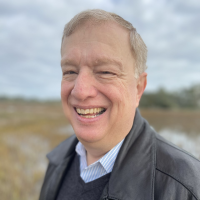Jean Monnet: Unconventional Statesman

How did Jean Monnet, an entrepreneurial internationalist who never held an elective office, never joined a political party, and never developed any significant popular following in his native France, become one of the most influential European statesmen of the twentieth century? How did he conceive of, and become instrumental in achieving, European integration?
Sherrill Brown Wells, professorial lecturer in history and international affairs at The George Washington University will discuss her latest book, a political biography, entitled Jean Monnet: Unconventional Statesman which addresses these questions and sheds light on the role of European and American leaders in establishing peace in war-ravaged Europe in the aftermath of World War II.
Joining Wells on the panel is Thomas Alan Schwartz, professor of history at Vanderbilt University.
Christian F. Ostermann, director of the Wilson Center's History and Public Policy Program and European Studies will chair the event.
Speakers

Distinguished Professor of History and Professor of Political Science and European Studies, Vanderbilt University
Hosted By

History and Public Policy Program
A leader in making key foreign policy records accessible and fostering informed scholarship, analysis, and discussion on international affairs, past and present. Read more


Global Europe Program
The Global Europe Program is focused on Europe’s capabilities, and how it engages on critical global issues. We investigate European approaches to critical global issues. We examine Europe’s relations with Russia and Eurasia, China and the Indo-Pacific, the Middle East and Africa. Our initiatives include “Ukraine in Europe”—an examination of what it will take to make Ukraine’s European future a reality. But we also examine the role of NATO, the European Union and the OSCE, Europe’s energy security, transatlantic trade disputes, and challenges to democracy. The Global Europe Program’s staff, scholars-in-residence, and Global Fellows participate in seminars, policy study groups, and international conferences to provide analytical recommendations to policy makers and the media. Read more


Cold War International History Project
The Cold War International History Project supports the full and prompt release of historical materials by governments on all sides of the Cold War. Read more
